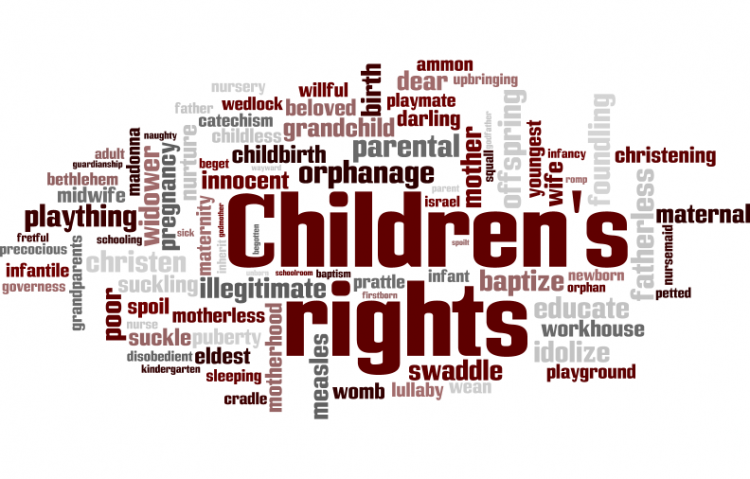
- Target:
- General Public, Indigenous and Children services, State and Commonwealth Governments
- Region:
- Australia
- Website:
- action.amnesty.org.au
In November 2007, Amnesty International published an article highlighting the lack of support and services for Indigenous women and children who are victims of sexual abuse.
Nine males pleaded guilty to raping a ten-year-old Aboriginal girl in the community of Aurukun in Cape York, Queensland in 2006. None of the offenders, who were tried in Queensland District Court, will serve a custodial sentence. Six boys were sentenced to 12-month probation orders, with no convictions recorded, while three others aged 17, 18 and 26 were given suspended sentences.
The Queensland Crown Prosecutor Steve Carted described perpetrators as "naughty" and the act as a "childish experiment" to which the victim willingly consented. In her sentencing statement, Judge Sarah Bradley stated that the girl was "not forced" and "probably agreed to have sex" with the offenders (Pandora, 2007).
In reaction to the verdict in this case, the Queensland Government stood down the QLD Crown Prosecutor, pending an investigation into the handling of the case. The QLD Attorney General, Kerry Sine, has intervened and petitioned for an appeal and a review of 75 similar cases in the last two years.
This incident has now brought attention to the neglect of indigenous females, both adults and children, in the Australian judicial system. Ella-Duncan (2006) states that Aboriginal females are almost two and half times more likely to be victims of child sexual assault than non-Aboriginal females and that data collected only reflects incidents of child sexual assault in Aboriginal communities that are reported and where the Aboriginality of the victim is recorded and that child sexual assault is under reported in Aboriginal communities.
Many Aboriginal girls and women are often neglected by the judicial system as high-lighted in the QLD rape case and demonstrate the urgent need to reform the judicial system to better protect girls' right to live free from violence (Pandora, 2007).
In present day Australia, Human Rights are currently being violated and neglected, as in the instance of the QLD gang rape ruling. This case highlights a need to ensure all legal personnel, including prosecutors and judges, are properly trained to treat violence against women and girls as grave human rights violations.
Like many Aboriginal females before her, this 10 year old girl has endured the degrading and cruel act of rape. Even more horrifying, she was abused by the hands of nine men and boys from within her own community. The decision by the judge to sentence the three men to six months' imprisonment, with the sentence suspended for 12 months, and to place the six teenage juveniles on a 12-month probation order, without a conviction recorded, minimised completely the gravity of the offence and the long-term effects of the offence on the victim and her family.
By bringing this story of social injustice and issues surrounding it such as child sexual assault, Indigenous Rights and the violation of the Universal Declaration of Human Rights, lack of assault and rehabilitation services for indigenous child abuse victims, their families, communities and the perpetrators to the public’s attention will hopefully lead to social and political change within Australia.
The need for social change in relation to the treatment of indigenous female sexual assault victims is great. Support and advocacy services need to be established for indigenous assault victims and their families to help cope with such a traumatic event such as rape.
The issue of child sexual assault within indigenous communities needs to be highlighted and brought to the public’s attention via education and campaigns.
In reaction to the QLD gang rape case, Amnesty International Australia is campaigning to the Federal Government for a National Plan of Action and is calling on the Government to:
•Ensure the national council to oversee the national plan includes indigenous representation
•Develop a national plan to ensure prosecutors, judges and other personnel are adequately trained in dealing with issues of sexual violence
•Consider the implementation of specialist sexual assault courts, in which child survivors are provided with an advocate.
Prime Minister Kevin Rudd and his Government have committed to developing a national action plan and have taken a zero tolerance approach to violence against Aboriginal Children. However, until this National Plan of Action becomes legislation, the state judicial systems can continue to violate the human rights of indigenous children who are victims of assault.
By signing this petition, Aboriginal children who are victims of sexual abuse and assult can recieve the support and services they so desperatly need and highlight the States and Federal Governments neglect of human rights and call for the development of a National Plan of Action.
You can further help this campaign by sponsoring it
The More Rights for Indigenous Children who are victims of Abuse petition to General Public, Indigenous and Children services, State and Commonwealth Governments was written by Alyce Kelly and is in the category Children's Rights at GoPetition.